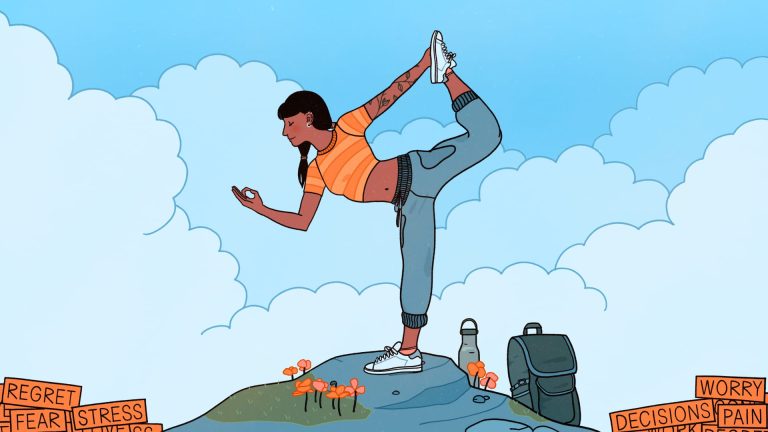Emotionally secure people feel empowered, confident and safe. They live authentically and stick to their own values and beliefs, even when doing so may rub others the wrong way.
As a Harvard-trained psychologist, I’ve seen how emotional security can also help people have more gratitude for the good in their lives, as well as be more creative, spontaneous and free.
If you answer “yes” to any of these questions, you’re more emotional secure than most people:
1. Can you listen to different perspectives you disagree with?
Emotionally secure people are able to hear other points of view without reacting to them in an aggressive way.
Instead of going to battle, there is a flexible, empathic and non-judgmental exploration of another person’s reality — even during times of conflict and disagreement.
2. Can you set healthy boundaries?
Emotional security is associated with knowing yourself and setting limits based on your values.
Consequently, emotionally secure people can articulate how they want to be treated and set guidelines for how they will respond if those boundaries are not respected.
3. Can you admit when you’re wrong?
All of us are wrong sometimes, but it can be very difficult to own up to it. Emotionally secure people can acknowledge when they’ve made a mistake, take responsibility, and apologize for their actions.
4. Do you know your core values and beliefs?
Are you able to communicate your perspective in a respectful way, even when others may strongly disagree?
Emotional security is associated with being authentic, knowing one’s values and acting in a way that’s consistent with them in all life situations.
5. Can you express negative emotions respectfully?
Being emotionally secure means communicating your feelings in a respectful way that focuses on your internal experience.
Often, this is reflected by using “I” statements, like “I feel” or “I think,” instead of blaming others for your circumstances.
6. Can you take criticism from others?
Receiving constructive feedback without immediately rejecting it or lashing out is a key sign of emotional security.
It means you have a strong sense of self that takes into consideration other people’s perspectives and opinions about your approach to things, without taking them personally.
7. Do you continually strive to change and grow?
The most emotionally secure people have an appreciation for the journey of life and the process of evolving over time.
They are not afraid to embrace change. They find joy and satisfaction in the idea of learning and becoming the best version of themselves.
8. Can you stop yourself from reacting impulsively?
Emotionally secure people tend to be skilled at deliberately choosing their responses to difficult situations.
In this way, they aren’t usually reactive or impulsive in their relationships and can articulate themselves clearly, even when they are angry or upset.
9. Do you trust that you’ll be okay, not matter what challenges come your way?
Emotionally secure people know that life can be difficult, and they have a general acceptance that they will deal with hardship as it comes.
They also have a deep sense of gratitude for what is important to them, which helps them through the rough patches.
Being emotionally secure not only boosts our mental health, but it gives us the confidence to try new things and express ourselves freely without a fear of rejection. The more secure we feel in our own skin, the more freedom we have to enjoy our lives while building meaningful, authentic relationships.
Dr. Cortney S. Warren, PhD, is a board-certified psychologist and author of the new book “Letting Go of Your Ex.” She specializes in romantic relationships, addictive behavior, and honesty. She received her clinical training at Harvard Medical School after earning her doctorate in clinical psychology from Texas A&M University. Follow her on Instagram or Twitter @DrCortneyWarren.
Don’t miss:
Read the full article here









